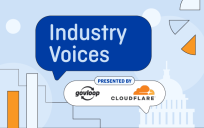Good: Big data. The Cloud. Information economy. Internet of Things. Medical advances. Engaged citizens. Crowdfunding. 3D printing. Crowdsourcing. Co-creation. Co-production. Open source. Open government. Smart cars.
Bad: Identity theft. Big Brother. Phishing. Spyware. Malware. Spam. Zombie computers. Key logging. Hackers. Pharming. 419s . Social isolation. Marginalization. Privacy breaches. SkyNet.
Sorry about that last one – I couldn’t resist the sci-fi reference. But really, those are our fears that you see reflected in movies. Of course, most of the items that I listed under ‘good’ could equally be ‘bad’ depending on how you view things or how the information is used. If you look below the plot lines, I think that the core issue is that of finding a balance between ensuring privacy and responsible data use.
First, what is privacy?
That’s the real question isn’t it? We all have different views of what should be private and what should be public. As public servants, we’re closely scrutinized by the public and journalists to make sure we’re following the legislation on what can and can’t be shared by our own organizations. Our Government Chief Privacy Officer talks about the risks and responsibilities for the public sector in his ‘Taking personal information seriously’ blog post’ and there is also security and privacy management guidance published on the New Zealand Government’s Web Toolkit as well.
But despite that, at the Department of Internal Affairs* some of the feedback we’ve gotten through user research reflects the contradictory nature of what we do and how we do it. People don’t understand why they have to update their contact information at each agency they deal with instead of updating it once and agencies making the connection. Equally, people may not want the government to share their personal information; or, at least, they want to be asked first.
I think that wanting privacy does not mean you have something to hide but that you’ve made choices about what you are willing to share and what you’re not, for whatever reasons make sense to you. It’s that simple: people should be able to make their own choices. But it’s also that complex: we need to share some information for us to function as a society.
We might be a bit more sensitive in New Zealand: over the last couple of years, there have been some significant privacy breaches by government agencies. Nothing malicious but the damage was done anyhow. And now that New Zealand is headed down the path of transforming government information and communications technology (ICT) and has plans to move 70% of government transactions online by 2017, we’ll be facing this question frequently.
I think that this quote from the New Zealand Government ICT Strategy and Action Plan to 2017 (ICTSAP) reflects the intent to create a system that serves people better:
ICT is not just about technology – it’s about the ways in which information and technology are used to deliver better services and enhance trust and confidence in government.
I haven’t done a comprehensive search, but I would guess that the New Zealand ICTSAP’s objectives are mirrored by many countries:
- create effective and efficient integrated service delivery models
- realise new value from government information assets
- optimise the use of scarce resources and capabilities
- strengthen assurance systems to manage risk and quality
- deliver a migration path for aging legacy systems
- leverage scale and efficiencies
- partner with the private sector and non-governmental organisations
- increase the pace of change.
The bigger picture
So the ICTSAP covers the government perspective but what about everyone else? A group called the New Zealand Data Futures Forum** (NZDFF) considered exactly that question. They took a look at data, privacy and all the related issues from the combined perspective of government, the private sector and academia.
The [New Zealand] Data Futures Forum is a group of people who collect and use data or think about how it is being used or will be used…We do not reflect the whole of society. But we are citizens and have children and families who are growing up and live and work here in New Zealand. The Minister of Finance and the Minister of Statistics invited us to establish the Forum because they want to know how we as a country should respond to the opportunities and the challenges presented by data.
Now, I don’t know about you but because I work in government, I’ve got a bit of a bias: sometimes I think that channelling the average non-government person and understanding their needs is easy. But I’m wrong. I can’t separate myself enough and I’m occasionally reminded of that. [My previous blog post on Thoughts from New Zealand: Does open source lead to open government? covers my most recent reminder.] This is why I value the work that NZDFF did because I know that I have a blind spot.
I like the idea that NZDFF engaged with people across New Zealand to find out what their views were and make sure we had more than just the public sector perspective. As a group, they stated that, “one important element of our data future is how we choose to use, share, and protect personal and other information.”
And from all this engagement, NZDFF has come up with 4 principles to guide our data future:
- Value: New Zealand should use data to drive economic and social value and create a competitive advantage
- Inclusion: All parts of New Zealand society should have the opportunity to benefit from data use
- Trust: Data management in New Zealand should build trust and confidence in our data institutions
- Control: Individuals should have greater control over the use of their data.
These principles sound sensible, pragmatic and a bit aspirational. They describe an ideal state but they also offer a second gauge to measure against. In particular, we can look to:
- the ICTSAP for specific actions with measureable goals. Government agencies are actively working to deliver on these actions.
- the NZDFF work for the more abstract, the philosophy that underpins government’s intents in this space. NZDFF also promotes an iterative approach that emphasizes putting ideas into action, learning by doing, and then folding lessons back in for continuous improvement.
Opportunities and challenges
There are a lot of visionaries who can see the possibilities for using data to influence economies, social values and so much more. To go back to sci-fi movies, many plots are built around a scientist or computer genius who has a great idea to make the world a better place…until something goes wrong. The real world isn’t as dramatic but having people put energy and effort into working out what’s acceptable and what’s not before we get to those decision points should help us stay aligned with our cultural values. Since New Zealanders and Americans share many of the same values, you might find the ICTSAP and the NZDFF work useful too.
* DIA handles passports, birth, death and marriage certificates; we manage government’s flagship website Govt.nz; we also manage www.data.govt.nz and more recently, an online authentication service called RealMe.
** NZDFF Chair John Whitehead is a former Secretary to the Treasury and distinguished public servant. He spent two years in Washington, D.C. as an Executive Director of the World Bank. John has discussed NZDFF work with public sector peers in the US.
Susan Carchedi is part of the GovLoop Featured Blogger program, where we feature blog posts by government voices from all across the country (and world!). To see more Featured Blogger posts, click here.





Leave a Reply
You must be logged in to post a comment.